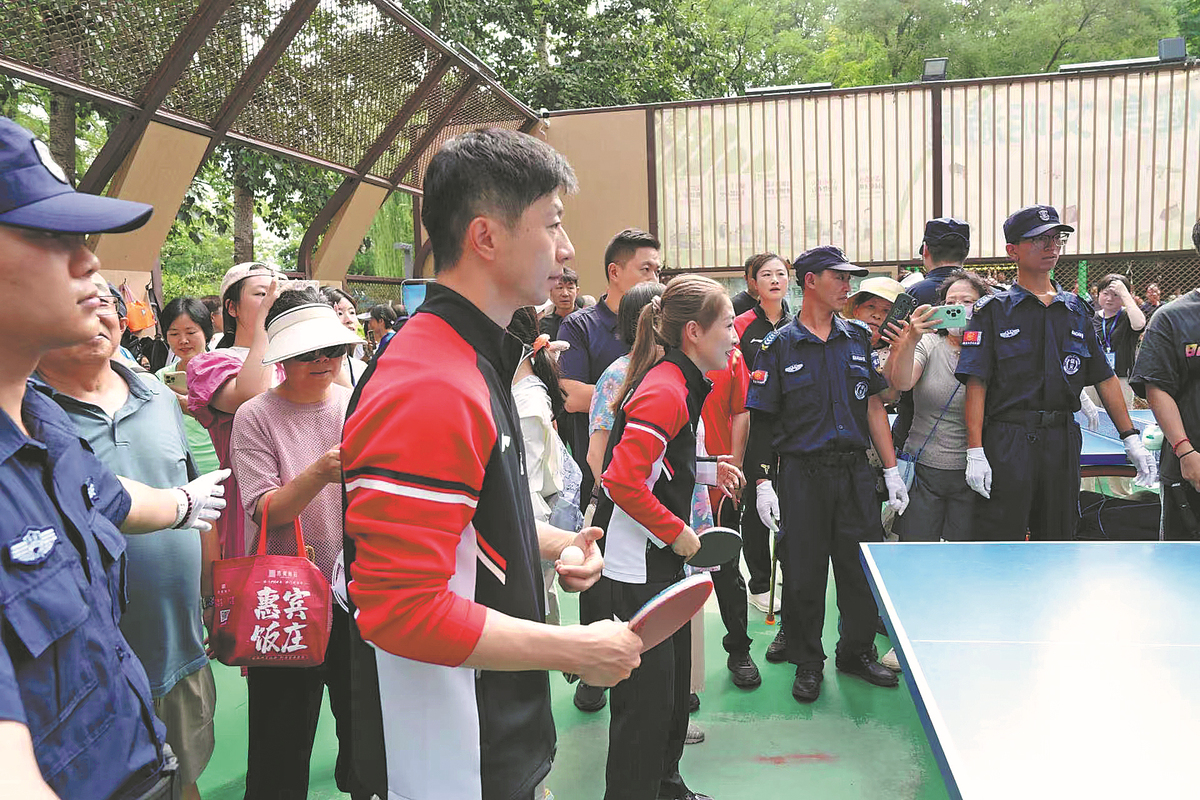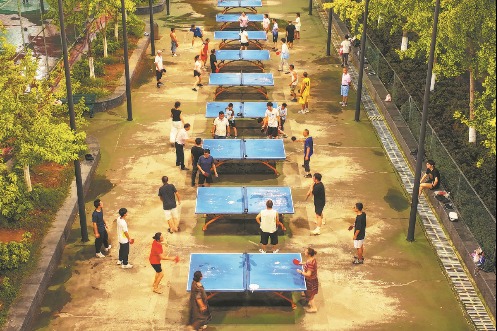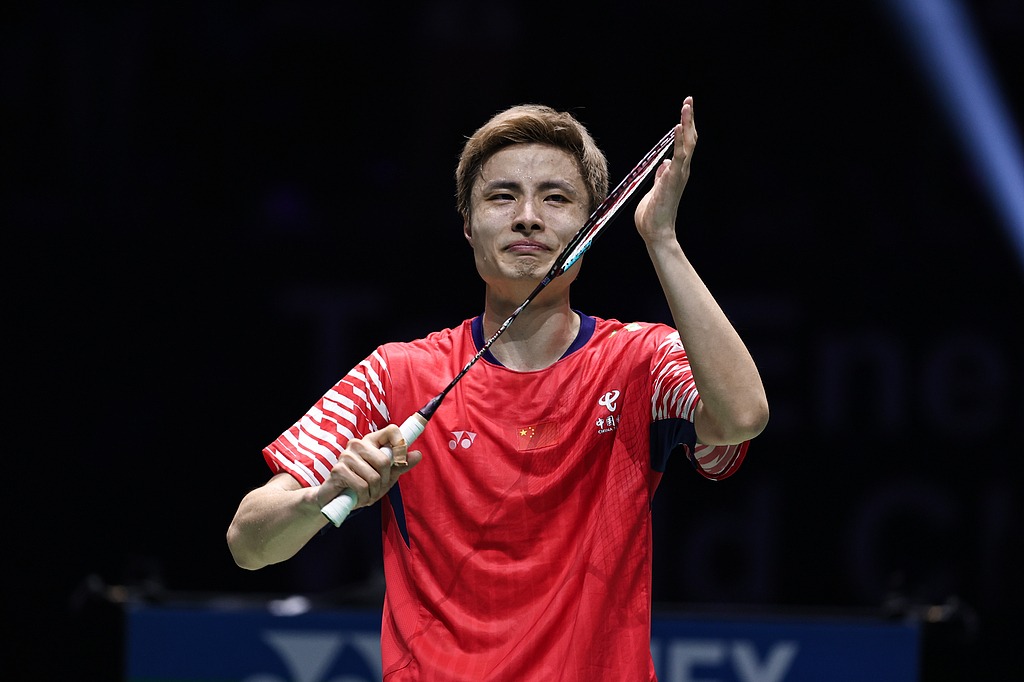Building ping pong communities
Enthusiasts across the country are reaping benefits of program to increase access to national pastime


Table tennis hub
In Anshan, Liaoning province, the city is still and quiet at six in the morning. Streets are nearly empty, but the table tennis courts in the parks are crackling with energy.
This city, home to Olympic champions Ma Long, Li Xiaoxia and Guo Yue, has seen a steady growth in enthusiasm for table tennis, turning morning park routines into vibrant community gatherings.
At Yongle Park in Tiexi district, one outdoor, floodlit court stands out, hailed by players as the best in all of Anshan. Thirty-five standard tables, professional shadowless lighting, rubberized floors, stone-and-wood benches, and surrounding nets create an environment where enthusiasts can play from dawn until nearly 10 pm.
The court's upgrade came last year, when Anshan hosted the program's first national outdoor invitational by the Chinese Table Tennis Association. Nearly 2,000 participants turned out, and the Tiexi district government invested in the facility to meet both competition and nighttime practice needs.
Guo Xiao'ou, director of the Tiexi district bureau of culture and tourism, explained that every detail — from the choice and height of the lights, to installing poles without harming the ground or greenery, and even the placement of benches — was meticulously planned, with input from players and the community.
"Building artificially lit outdoor courts is a clear example of 'small facilities' serving 'big public needs'," she said. "This program has sparked enthusiasm for fitness, turning Yongle Park into a 'happy park' in the local neighborhood."
For residents like He Baiqin and her spouse, living nearby means table tennis is just a short walk away. Since the lighting was installed, more young players and children have joined evening sessions. "Life is comfortable now, pensions are enough, and playing here with everyone every day is such a joy. Our happiness index is very high," she said.
Young players are part of this energy too.
Ten-year-old Qu Yumo often practices at Yongle Park and idolizes Ma Long, just like siblings Bai Yuhe and Bai Yuzan, who are also regulars there.
The "Bringing Ping Pong to Communities and Parks" activities have given them a space to compete, learn and make friends. Qu, who has won fifth place nationally and first in Anshan, says: "Ping pong brings me so much happiness. My classmates are always so envious when they hear about my results!"
Sun Zhiying, 78, head of Yongle Park Ping Pong Station and a two-time men's singles champion in the Liaoning Provincial Disabled Table Tennis Competition, embodies the sport's intergenerational appeal.
Despite physical challenges, his passion is undiminished. The station's WeChat group is full at 500 members, and Sun personally buys prizes and hires a drone team to record matches, turning every game into a cherished memory.
Shi Haimei, chair of the Anshan Table Tennis Association, often works late into the night organizing events. "The program has fueled Anshan's table tennis growth," she said. "Grassroots competitions have won the hearts of the people. From five-year-olds to octogenarians, everyone joins in."
Parks across China now echo with a sound that speaks of sport, science and society converging.
Through grassroots enthusiasm, upgraded facilities, and national initiatives, the "Bringing Ping Pong to Communities and Parks" program is transforming ordinary mornings into celebrations of skill, camaraderie and joy, proving that table tennis is more than a game — it is a heartbeat of the community.
liyingxue@chinadaily.com.cn
Most Popular
- Building ping pong communities
- Shi downs Kunlavut to win first world title
- China's Liu/Tan win women's doubles title at badminton worlds
- Jeremy Lin ends 15-year basketball career
- Preparations for China's Special Olympic Games enters 'sprint phase'
- Kane's late goal saves Bayern's blushes






























